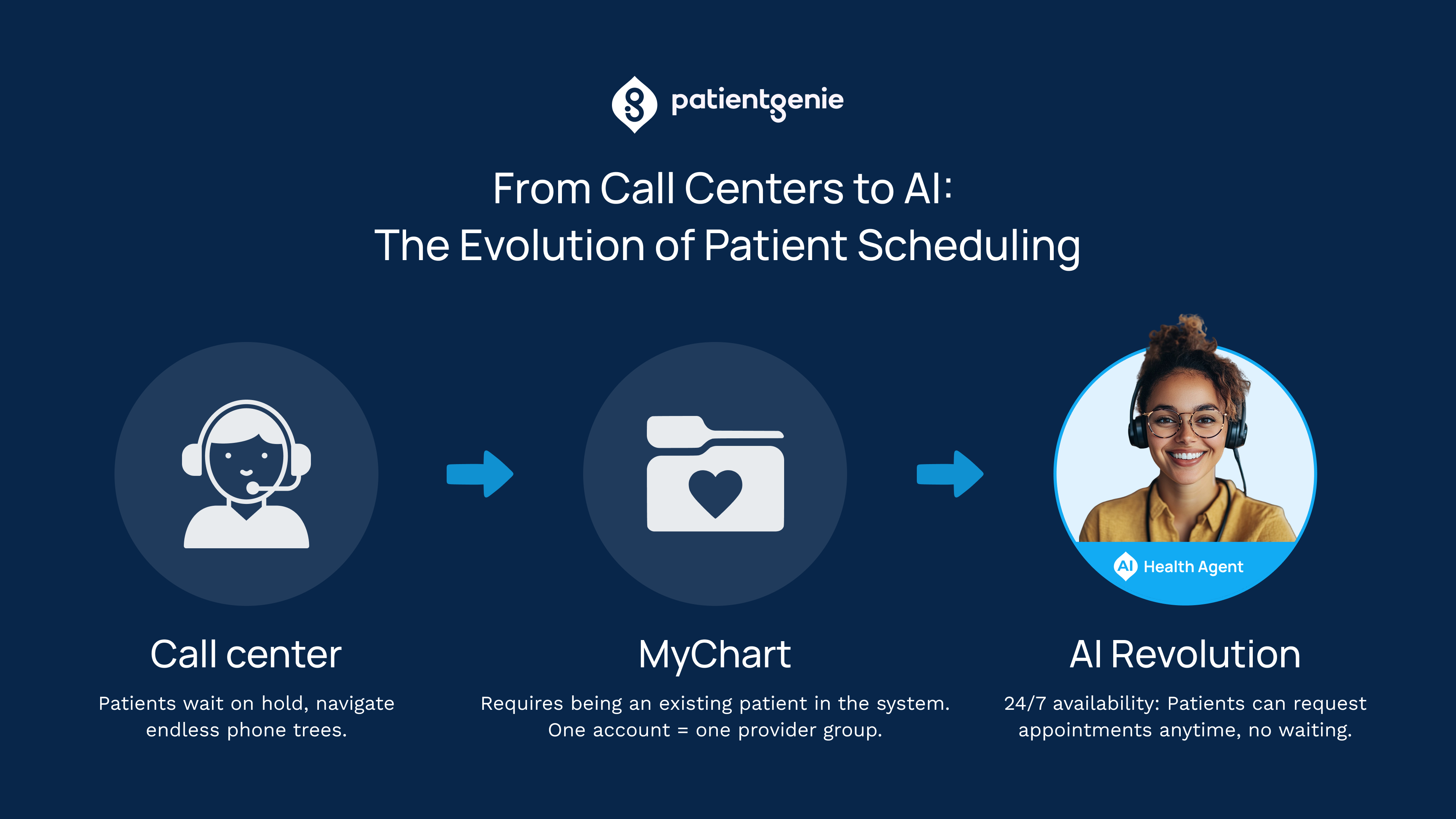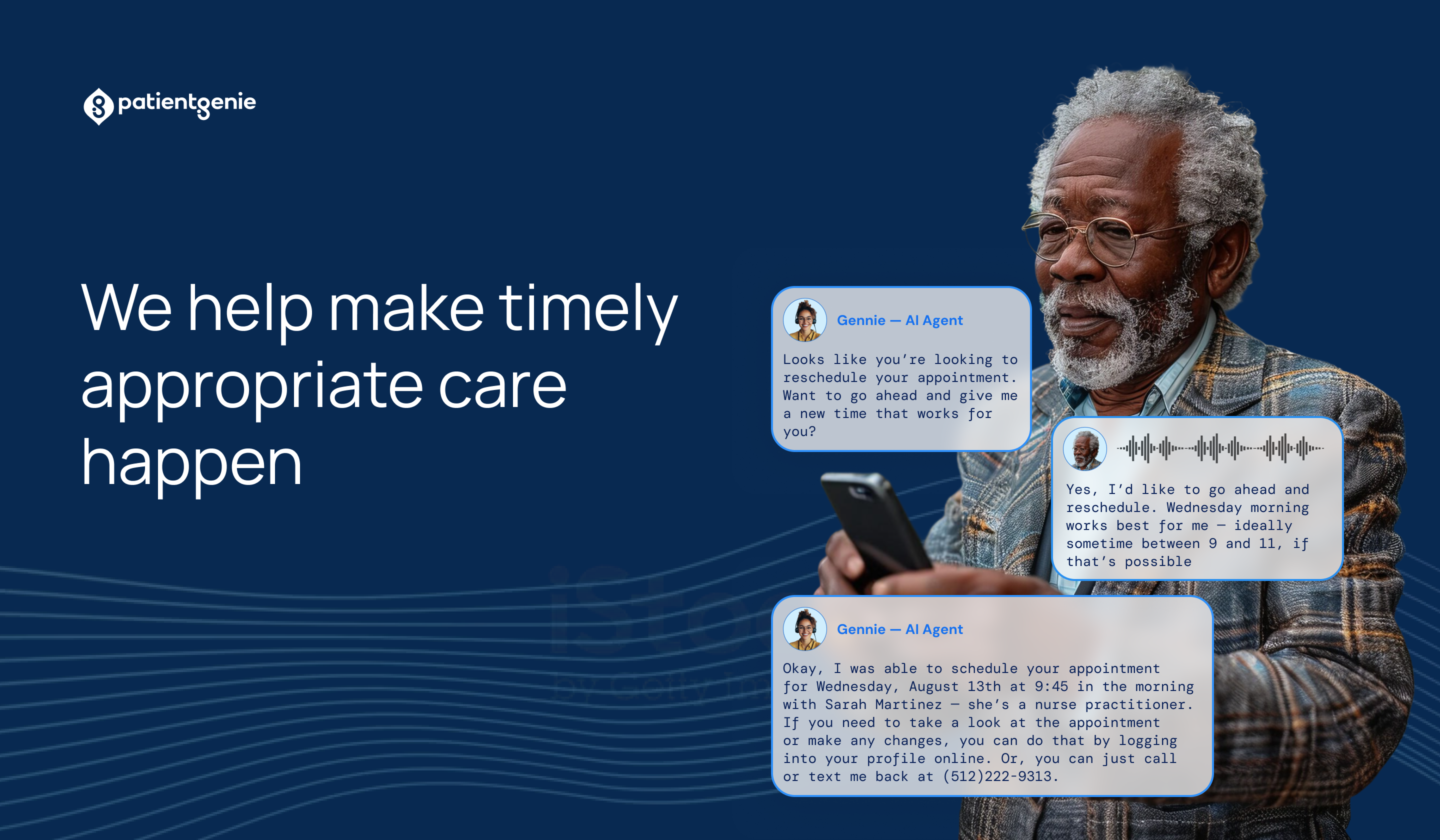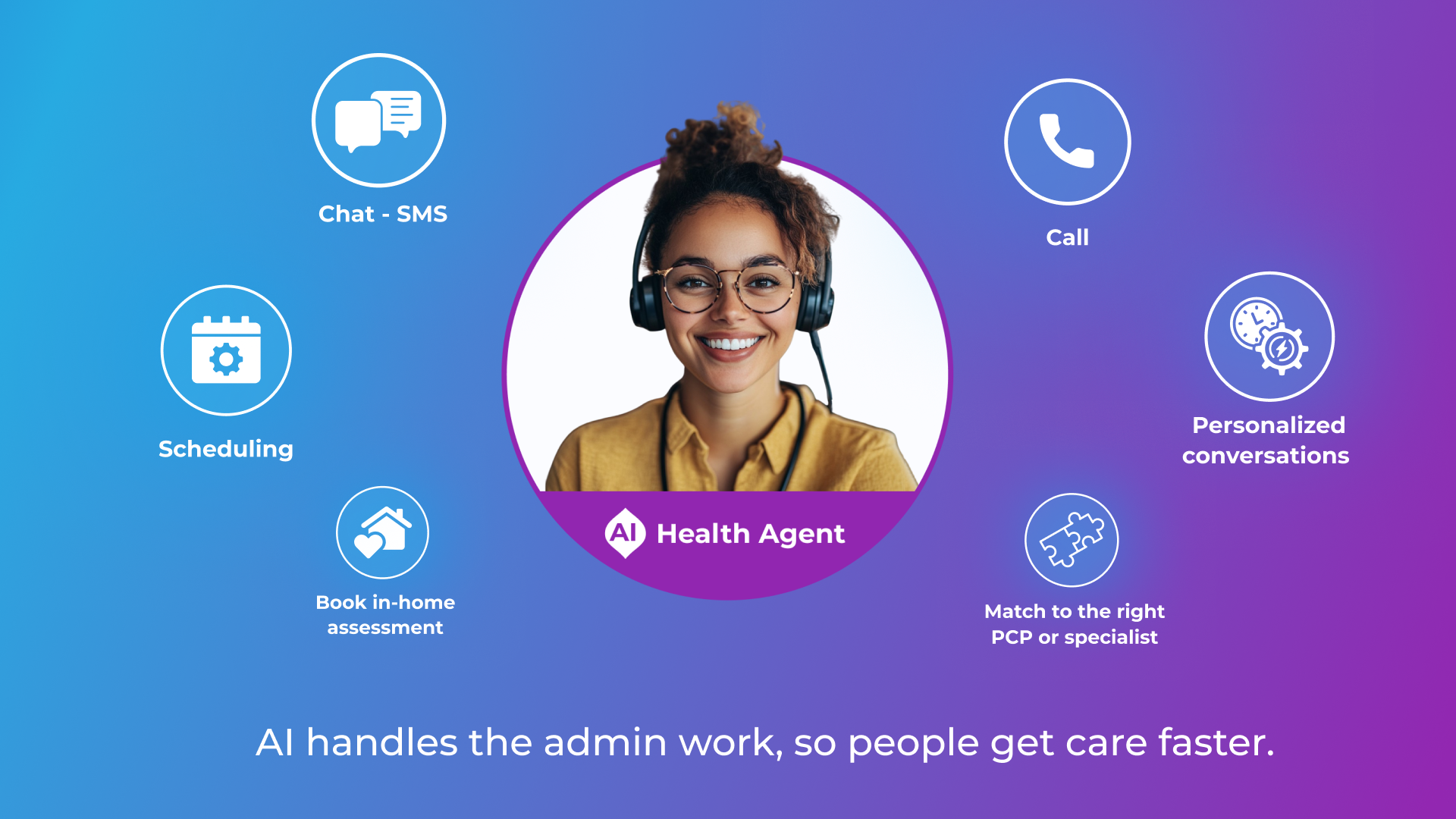3/25/2025
The Front Door to Healthcare Isn’t a Portal. It’s a Phone Call.

Over the past two decades, healthcare has invested billions in building digital “front doors.” Portals. Apps. Provider search tools. Care navigation platforms. All with the promise of improving access to care.
And yet, for all the innovation and UX design, one simple truth remains:
Most appointments are still scheduled by phone.
Not through apps. Not via AI chat. Not by logging into a member portal. Someone, usually the patient, still ends up picking up the phone and calling the provider’s office. If they don’t, care doesn’t happen.
The Last Mile Problem
We talk a lot about awareness in healthcare. About the importance of prevention, gaps in care, and closing them. Health plans send reminders. Portals send push notifications. Search tools highlight "in-network" options.
But there’s a huge difference between knowing what care you need… and actually getting it scheduled. That’s the last mile. And it’s the hardest one.
Because even when patients know they need to see someone, they still have to:
- Find the right provider
- Confirm network participation
- Navigate preferences and location
- Call the office (sometimes multiple times)
- Wait on hold
- Explain their situation
- Match availability
- Follow up if nothing is open
It’s no wonder millions of appointments never get made. Not because patients don’t care, but because it’s just too hard.
Let’s Be Honest: Portals Aren’t the Answer
We’ve seen the numbers. Portal adoption remains low, especially among high-risk, underserved, and older populations. Even among tech-savvy users, the drop-off between “searching” and “scheduling” is massive.
Why? Because portals are passive. They provide access to tools, not access to care. The burden is still on the patient to take action.
Real access means taking the action for them.
What We’re Doing at PatientGenie
At PatientGenie, we believe the true front door to care is not a link or a login. It’s a human process. A conversation. A call.
So instead of forcing patients to navigate the complexity of the system, we do it for them with AI voice agents that act on their behalf.
Our GenAI agents call provider offices directly. They speak with real front desk staff, handle the scheduling workflows, and complete the appointment on behalf of the member. If they need to try multiple providers, they do. If the first option is full, they keep calling. If clarification is needed, they ask.
It’s not flashy. It’s not futuristic. It’s what actually works.
This is AI designed to operate in the messy, real-world workflows that define healthcare access. Not to replace people, but to help them. To take something off their plate. To make sure care happens when it should.
The Future Isn’t More Apps. It’s Less Friction.
Digital tools will always have a place. But if we want to truly transform healthcare access, we have to acknowledge how people actually engage with the system.
It’s time to meet them where they are and do the work for them. We don’t need more filters. We need follow-through. And for now, that still starts with something simple: a phone call.
Last news
From Call Centers to AI: The Evolution of Patient Scheduling
For decades, scheduling a healthcare appointment has meant waiting on hold, navigating phone trees, and hoping someone answers before you give up.
Now, a new era is here. AI-powered scheduling agents work around the clock to match patients with the right provider and book appointments — calling offices, verifying availability, and even making multiple attempts until the job is done.
9/24/2025PatientGenie 2030: What a World with Frictionless Access Might Look Like
What if getting care was as simple as saying, ‘I need help’? By 2030, it can be. At PatientGenie, we’re building the infrastructure for frictionless healthcare access—AI agents that call providers, engage members, schedule in-home assessments, match patients with PCPs, and coordinate follow-ups automatically. No portals. No hold music. No missed care. This isn’t the future—it’s happening now, and it’s changing how patients, providers, and health plans connect. Let’s make 2030 happen, now.
8/5/2025


